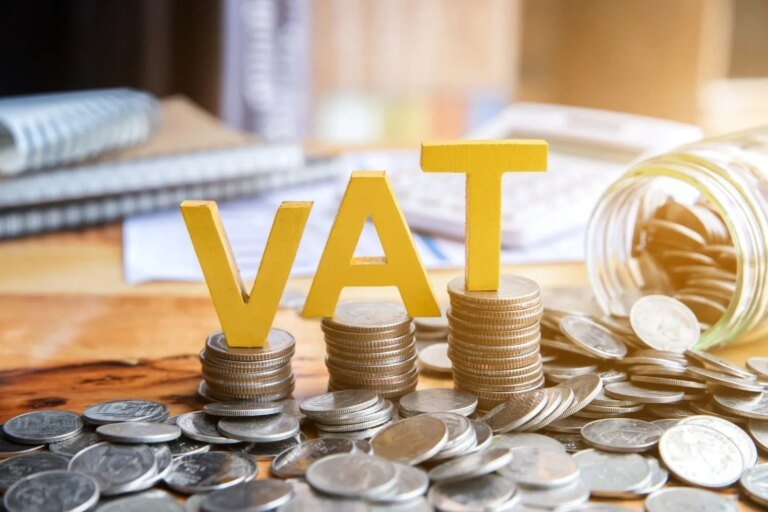In the world of business, collaboration often yields greater outcomes than individual efforts. This principle is epitomised by partnerships, where two or more individuals or entities join forces to pursue common business objectives.
However, such collaboration necessitates a well-defined financial structure to ensure transparency, accountability, and efficient management of resources.
This is where partnership accounting comes into play. This article provides an in-depth understanding of partnership accounts in the UK, covering their types, regulations, and reporting requirements.
Defining Partnership
A partnership has been defined in S1(1) of Partnership Act 1890, as ‘the relation which subsists between persons carrying on a business in common with a view of profit’.

It is a popular business structure in the UK where two or more individuals or entities come together to collaborate and share responsibilities, resources, and profits. Therefore, mere joint ownership of the property does not create a partnership – something more is required for the letting to constitute a partnership.
While partnerships do not possess legal entity status in England, Wales, or Northern Ireland, they hold recognition as “persons” in the context of taxation.
Types of Partnerships
In the UK, partnerships come in various forms, each with distinct characteristics that cater to different business needs and objectives. The primary types of partnerships include general partnerships, limited partnerships, and limited liability partnerships (LLPs).
General Partnerships
This is the most basic form of partnership where two or more individuals or entities collaborate to operate a business. Here, all partners equally manage the business and bear mutual responsibility.
However, this structure comes with unlimited liability which means that personal assets of partners can be used to settle the partnership’s debts.
Limited Partnerships
Limited partnerships consist of general partners and limited partners. General partners manage the business with unlimited liability whereas limited partners invest capital with restricted liability, avoiding day-to-day management involvement.
It is often used in investment ventures where some partners want to invest capital without actively participating in management.
Limited Liability Partnerships (LLPs)
LLPs are a more modern form of partnership that combines elements of partnerships and limited liability companies. LLPs provide partners with limited liability, similar to shareholders in a company, while still allowing flexibility in management and decision-making.
Partners in an LLP are not personally liable for the partnership’s debts beyond their capital contributions.
Partnership Accounts
Partnership accounts are a set of financial records that track the financial activities of a partnership. These accounts serve as a basis for assessing the financial health of the partnership, making informed business decisions, and complying with legal and tax obligations.
While general partnerships only need to register with HMRC, Limited Partnerships and Limited Liability Partnerships must additionally register with Companies House. Consequently, there is no legal requirement to prepare the partnership accounts for general partnerships and limited partnerships.
Nonetheless, it is prudent to prepare these accounts for preparing the partnership tax return and ensuring transparent documentation of financial dealings and standings among partners.

There are key components to partnership accounts:
- Statement of Financial Position (or Balance Sheet), which shows the value of assets, liabilities, and equity of the company
- Statement of Income and Expenses, which shows the company’s income and expenses for the financial period
- Notes to the Accounts, which provide further details on the accounts
- Member’s report
General Partnerships
As there is no legal requirement to file the partnership accounts, partners may choose only to produce some statements, and therefore, many choose to produce only the profit and loss account.
Limited Partnerships
There is no requirement for a Limited Partnership (LP) to send accounts to Companies House unless any of the LP’s general partners are UK limited companies as per The Partnerships (Accounts) Regulations 2008 (SI 569/2008).
Where these regulations apply, any General Partners that are UK limited companies must attach a copy of the partnership’s accounts to the copy of their own limited company accounts that they submit for filing.
Limited Liability Partnerships (LLPs)
Every LLP in the UK must prepare, and file the company’s accounts referred to as the “Statutory Accounts” annually. The LLP accounts should be filed with the Companies House and HMRC (together with the LLP’s tax return) annually
Tax Filing Requirements

Tax filing requirements for partnerships in the UK involve reporting financial information to HM Revenue & Customs (HMRC) for assessment and compliance. Here’s an overview of the key requirements:
Self-Assessment Tax Returns
Partnerships themselves do not pay taxes; instead, each partner reports their share of the partnership’s profits or losses on their individual Self-Assessment tax returns. Partners must include details from the partnership accounts, such as their share of income, expenses, and any other relevant financial information
Partnership Tax Return (SA800)
In addition to individual tax returns, partnerships must also file a Partnership Tax Return (form SA800) with HMRC. This return provides a summary of the partnership’s income, expenses, and other financial details.
The Partnership Tax Return helps HMRC cross-reference the information provided by partners in their individual tax returns.
Filing Deadlines
The deadlines for filing partnership tax returns vary. If filing on paper, the deadline is typically 31 October after the end of the tax year. If filing online, the deadline extends to 31 January following the end of the tax year.
For LLPs
LLPs have additional tax filing requirements due to their separate legal entity status. As stated above, LLP must prepare and file the company’s accounts annually. The deadline for filing the annual accounts is nine months from the financial year-end.
In the case of the first year, it will be 21 months from the date of incorporation or three months from the date of incorporation, whichever is longer.
Benefits of Partnership Accounting
Partnership accounting offers numerous benefits that contribute to the effective management and success of a partnership business. Here are some key advantages:

Financial Transparency
Proper partnership accounting ensures transparency in financial transactions and operations among partners. Each partner has a clear understanding of the business’s financial health, minimising misunderstandings and fostering trust.
Informed Decision-Making
Accurate and up-to-date accounting records provide partners with valuable insights into the business’s performance, allowing them to make well-informed decisions. Partners can identify trends, assess profitability, and strategies for growth based on reliable financial data.
Legal Compliance
Sound partnership accounting ensures compliance with legal requirements and regulations. Partnerships are accountable to both HMRC and Companies House. Maintaining accurate financial records helps avoid penalties and legal issues.
Tax Efficiency
Proper accounting facilitates accurate reporting of profits and losses on partners’ individual tax returns. This not only ensures compliance with tax regulations but also helps partners optimise their tax liabilities by claiming appropriate deductions and allowances.
Dissolution and Succession Planning
Comprehensive partnership accounts are crucial during the dissolution of a partnership or when transitioning to new partners. Accurate records aid in the fair division of assets, liabilities, and capital among partners.
Conclusion
Partnership accounting is the financial backbone of collaborative business ventures, ensuring that partnerships operate smoothly, transparently, and profitably. It rests upon the principles of fair profit sharing, accurate record-keeping, and adherence to partnership agreements.
As businesses continue to evolve, partnership accounting will remain a crucial tool for sustaining successful collaborations and achieving mutual business objectives.
Let’s Start a Conversation
Ready to ensure compliance in your partnerships? Our experts are here to assist you with partnership accounts. Move closer to success—reach out to us today!










